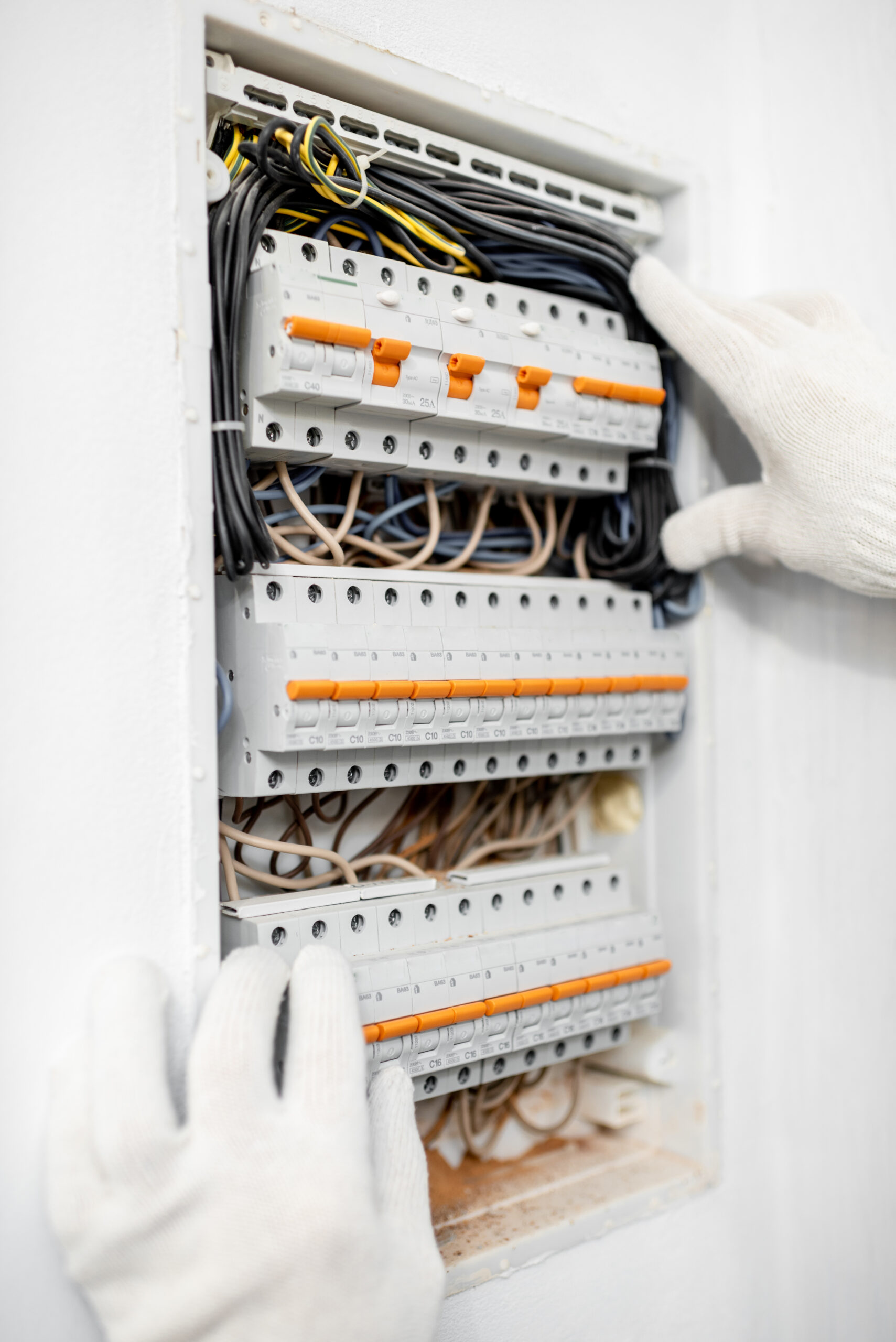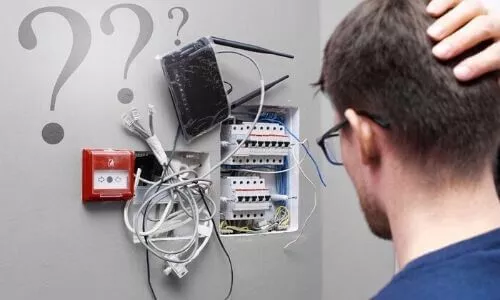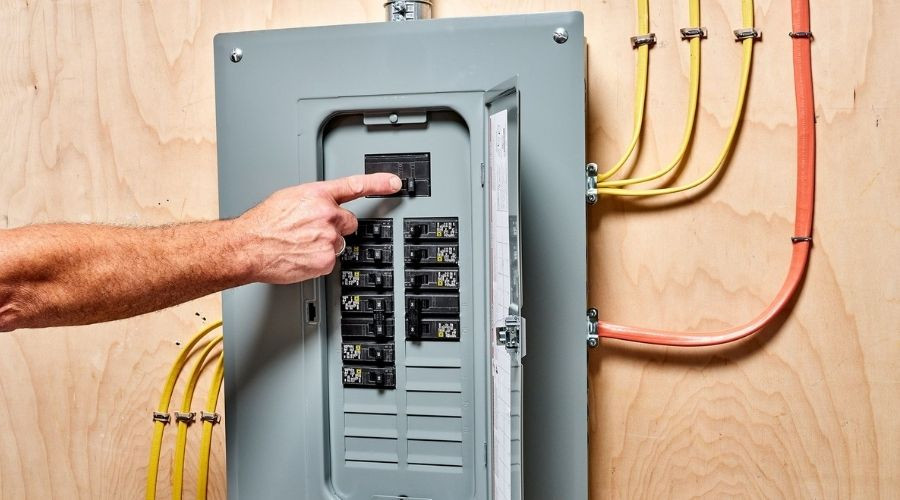5 Main Types of Electrical Panels

When it comes to ensuring adequate power for your electrical devices, the service panel you have in place matters. But which electrical panel is right for your property, and what are the key differences between each of them?
We’ll cover the five main types of electrical panels and their unique functionalities, providing valuable insights about electrical panel capacity along the way. Let’s dive in!
Understanding Electrical Panel Capacity
Before we get into all the different types of electrical panels, it’s important to have a basic understanding of service panel capacity. Electrical panel capacity refers to the maximum load that a service panel can safely handle for a given building. This is measured in amperes (amps) and illustrates how much electricity can be distributed to your devices, circuits, and appliances throughout your property.
Panel capacity is a key consideration for homeowners to keep in mind as they contemplate their replacement and installation needs. A service panel that doesn’t have a strong enough capacity to satisfy all your electrical demands can result in frequently tripped breakers, overloading, or even electrical fire in extreme cases. Upgrading your service panel to a higher capacity may be necessary if your equipment is outdated or experiences frequently tripped breakers.
5 Different Types of Electrical Panels & Their Functionality
Now that you have a thorough understanding of electrical panel capacity, it’s time to explore the five most common service panel systems available to Delaware County homeowners:
1. Main Electrical Panel/Breaker Box
Also referred to as a breaker box, the main electrical panel is the central unit of your home’s electrical system. It typically consists of either circuit breakers (for modern systems) or fuses (for outdated units), each designed to protect against overloading and faults to ensure a safe, reliable electrical supply. The panel receives electricity from your power company and distributes it throughout the property to your connected circuits, appliances, and devices.
2. Sub-Panels
A sub-panel is an auxiliary electrical panel that gets connected to the main breaker box. These are typically installed either to expand the electrical capacity of a building or to deliver power to remote areas. Installing a sub-panel can be particularly helpful when more circuits are needed to support your power demands but the main panel is nearing its capacity. They function in the same manner as the main panel but contain their own set of circuit breakers or fuses to maximize safety and reliability.
3. Transfer Switches
If you have a backup generator, a transfer switch is often required to ensure your system works properly. A transfer switch facilitates a seamless transition from your power company’s supply to your generator’s power during a blackout event and vice versa. They are specially designed to protect against back-feeding electricity into the utility grid, allowing you to enjoy a safe electrical supply during an emergency outage.
4. Lug Panels
Specially designed to support heavy-duty machinery and industrial equipment, lug panels are often installed in commercial buildings for this reason. They offer greater safety and efficiency when connecting large wires without the need for built-in circuit protection. Lug panels are ideal for industrial settings and properties that require a high electrical capacity to remain safe and operational.
5. Fuse Boxes
An older type of electrical panel, fuse boxes rely on fuses to protect against overloading and short-circuiting. When the system encounters an electrical fault, the fuse wire within the fuse melts to break the circuit and protect against further damage to your electrical system. While these units are not as common in modern-day buildings, they can still be found in older homes; however, most homeowners choose to replace their fuse boxes with circuit panels as they offer stronger protection and are easier to reset after a fault occurs.
Service Now!
Upgrade Your Electrical Panel With JDV Electric
Is your current electrical panel unable to satisfy your power demands? JDV Electric is here to help. Offering a broad variety of service panel replacement solutions, we are confident in our team’s ability to match you to the ideal system for your home’s power needs.
Get safe, reliable power delivered to your home by contacting JDV Electric at 610-364-5099 to schedule your service panel upgrade today!
Schedule Service Call


Sign Up for Our Safety &
Savings Plan
Annual Electrical Safety
Inspections & More
- Lifetime installation and 2-year repair warranties
- 15% discount on products and services
- Exclusive specials
- No service fees
- Transferrable plan if you sell your home





